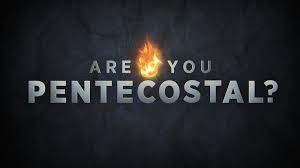A Tale of Two…Publishers…Pastors
Those of us who live in Grand Rapids are fortunate. Many of the major religious publishing houses are located here. My daughter Lindsey, a journalism major, has been applying to the various publishers. The feeling she received from Zondervan Books was that they exist to sell. Money is the bottom line, so they prefer light populist books such as Historical Christian Romances and mass appeal novels on Heaven and the successful Christian life – and of course – Duck Dynasty! She felt she didn’t want to work there.
Eerdmans Publishing (publisher of our current reading) on the other extreme pushes the envelope. They love to publish titles that cause one to question and think. They are open to most subjects, even when difficult and controversial. Even their youth books (Lindsey applied in that department) contained titles that were well written and approached difficult and controversial subjects. She wished she would have been hired by Eerdmans.
Baker Book House publishing finds its niche between those two extremes and also deals with seminary texts as well as popular romance books that guarantee a sale. Although they carry my book By Any Means, it wasn’t spiritual enough to allow me a book signing! Because of that, Lindsey didn’t even apply – good daughter!

The Scandal of the Evangelical Mind by Mark Noll believes that evangelicals have moved from an Eerdmans mentality to a Zondervan mentality. Maybe he has a point – while Zondervan is growing and moving into a new building, Eerdmans is struggling to stay open.
Noll first presents reality and the why it’s important to cultivate a mind of critical thinking. He suggests that we have a heritage of “one of the mind” from the reformers, greatest composers and even American Jonathan Edwards. Historically there was a tension between spirit and philosophy, but most understood that all spiritual movements involved serious thought.
But our evangelical worldview began changing. In reaction to parts of the enlightenment and secular universities, the bible began to be seen as a scientific text, which could be used to prove any issue on any subject. Instead of being able to study scientific ideas and questions from a relation of spirituality, compartmentalization of study versus faith has resulted in a mindset of caution and doubt toward any thought not initiated from a biblical proof-text.
Pentecostalism, dispensationalist and the holiness movement have contributed to evangelical’s fear of a “life of the mind.” A microcosm of this subjective preponderance over an objective thinking mind can be seen in a “tale of my two pastors.” An earlier pastor, with whom I’ve served, scheduled weekly book studies on leadership topics and popular authors such as Ortberg and Willard, engaging us in discussion and prayer. These gatherings, along with a monthly meeting for pastors in which we discussed culturally relevant topics and their relation to faith might not qualify completely for a “life of the mind,” but it did allow opportunities for question, debate and engagement with society.
A new pastor came along, aligning more with the holiness and Pentecostal traditions. Soon, the book studies were cancelled and instead, devotional guides and seasons of prayer were scheduled. The Pastors meetings went by the wayside in favor encouraging DAWG (Day Away With God) days. The church is noticeably different, with more fevered worship, healing services, and witnessing but little more disconnectedness from society and less thinking.
This isn’t a condemnation but a picture that Noll was trying to illustrate. Both expressions are needed, and as Noll says “we need reflection alongside of action.”(243). However, much of what makes American evangelicalism so distinct and so individual isn’t necessary essential to a life of faith. And as Americans export this type of Christianity around the world, let’s hope that the pendulum begins the swing back to a more balanced position.
Leave a Reply
You must be logged in to post a comment.